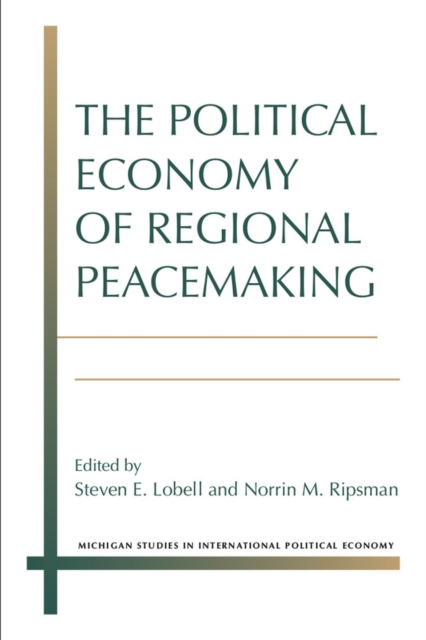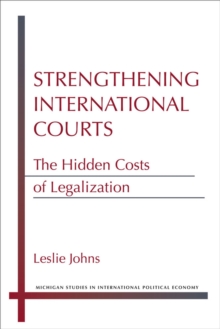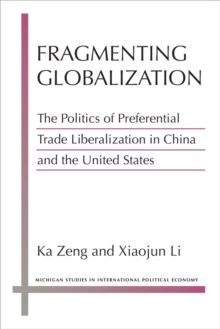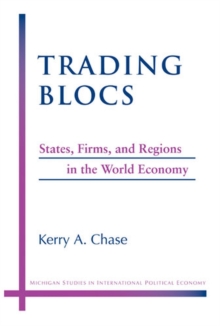
The Political Economy of Regional Peacemaking Paperback / softback
Edited by Steven E. Lobell, Norrin M. Ripsman
Part of the Michigan Studies in International Political Economy series
Paperback / softback
Description
In The Political Economy of Regional Peacemaking, scholars examine the efficacy of trade agreements, economic sanctions, and other strategies of economic statecraft for the promotion of peace both between rival states and across conflict-ridden regions more generally.
In the introduction, Steven E. Lobell and Norrin M. Ripsman pose five central questions: (1) What types of economic statecraft, including incentives and sanctions, can interested parties employ? (2) Who are the appropriate targets in the rival states-state leaders, economic and social elites, or society as whole? (3) When should specific economic instruments be used to promote peace-prior to negotiations, during negotiations, after signature of the treaty, or during implementation of the treaty? (4) What are the limits and risks of economic statecraft and economic interdependence? (5) How can economic statecraft be used to move from a bilateral peace agreement to regional peace?The chapters that follow are grouped in three sections, corresponding to the three stages of peacemaking: reduction or management of regional conflict; peacemaking or progress toward a peace treaty; and maintenance of bilateral peace and the regionalization of the peace settlement.
In each chapter, the contributors consider the five key questions from a variety of methodological, historical, cultural, and empirical perspectives, drawing data from the Pacific, the Middle East, Europe, Asia, and Latin America.
The conclusion expands on several themes found in the chapters and proposes an agenda for future research.
Information
-
Item not Available
- Format:Paperback / softback
- Pages:272 pages, 6 tables, 3 figures
- Publisher:The University of Michigan Press
- Publication Date:30/01/2016
- Category:
- ISBN:9780472053070
Information
-
Item not Available
- Format:Paperback / softback
- Pages:272 pages, 6 tables, 3 figures
- Publisher:The University of Michigan Press
- Publication Date:30/01/2016
- Category:
- ISBN:9780472053070










